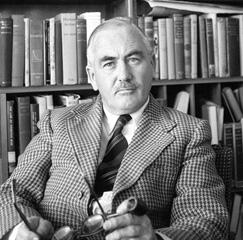The topic of frontier violence during the settlement of Australia continues to create such intense debate due to the proximity of the issue to the national identity. It also threatens to change the way we view our history and the core values on which the nation of today stands. The key point surrounding the debate remains in what way will our nations public history deal with the subject of frontier violence.
The crux of the issue in recent times has been whether or not the frontier wars, though there is still debate about whether they can be called a war in the first place, should be included in the Australian War Memorial (AWM). The AWM is the one of the greatest vehicles for Australian public history and remembrance. This is why the inclusion or exclusion of the frontier violence is of such national importance. Strong voices in favour of the incorporation of what they see as a war in the AWM, include many notable Australian historians such as WEH Stanner.
Presently in the current debate Stanner’s comment remains true, “the unacknowledged relations between two races” in 1968. That they remain unacknowledged in the AWM has been thus far due to refusal of the AWM to acknowledge that the violence constituted a war in which Australians fought. The two main arguments employed by the AWM to support this stance are the nature of the violence and the participants involved. According to the AWM the violence was, without centralised direction, irregular and varied so much from region to region that it doesn’t constitute a state of warfare. On the people involved the AWM makes it clear “only police forces or British military units were involved in the ‘wars’”. According to them this clearly doesn’t fit the AWM’s charter which is to commemorate Australia’s military forces.
The aboriginal activists on the issue believe that the aboriginals are therefore being deliberately and conveniently left out of the national historical narrative. Their catch cry “best we forget” best exemplifies their feelings. Inherent in this statement though is a potential politically minefield. Borrowing from the almost holy phrase “lest we forget” is a slap in the face to the generations of soldiers who have fought and died for their nation. Clearly the stakes are high for an issue that cannot remain unresolved but even in resolution will be contentious and liable to spark more debate.
 |
W.E.H Stanner. One of the staunchest advocates from recognition of the frontier violence. http://www.aiatsis.gov.au/images/stanner1968.jpg |
No comments:
Post a Comment